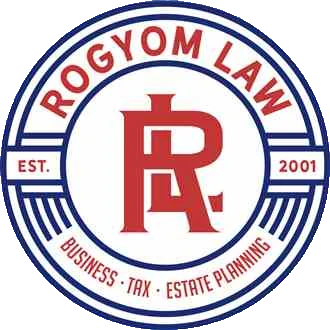Despite common belief, taxes can be discharged sometimes through either a Chapter 7 or Chapter 13 bankruptcy. In fact, bankruptcy is often the best option for many with tax debts. A tax attorney will typically be familiar with both the tax law and non-tax law options available to you and should be able to point you toward the best solution.
Tax attorneys likely have knowledge of the IRS standards used when approving an installment agreement or an offer-in-compromise and, further, may know a taxpayer’s likelihood of success with either option. In addition, they may know the best way to utilize the IRS statutes of limitations for collection and whether it too can benefit the taxpayer. Of course, a tax attorney whose law firm also offers bankruptcy services may know those situations when bankruptcy is a more effective solution, and, conversely, not offering bankruptcy services likely eliminates from suggestion most of those nationwide offer-in-compromise mills we all know.
To determine whether taxes will be dischargeable through bankruptcy, your tax attorney will look at the age of the taxes due, the type of tax due, when and if tax returns had been filed, and whether their are any special circumstances, such as fraud which could prevent discharge.
While there are many exceptions, there are three general rules in determining whether an income tax debt can be discharged through bankruptcy. To be discharged in bankruptcy:
- the tax must be for a tax year for which the tax return was due (including extensions, if taken) more than three years prior to the filing of the bankruptcy petition;
- the tax returns must have been filed more than two years before filing the bankruptcy petition; and
- the tax must have been “assessed” more than 240 days prior to filing the bankruptcy petition.
In addition to the above general rules, additional rules can extend the statutory periods so the tax debt may not be dischargeable until a later time. If you intend to file for bankruptcy and have tax debts, then you should certainly discuss with your attorney whether those debts can be currently discharged and determine whether delaying the bankruptcy filing to discharge the tax debt would be in your best interests.
Under some circumstances certain tax debts may never be discharged in bankruptcy. Some tax debts relating to employee withholding, as well tax debts resulting from fraud or tax evasion, can never be discharged regardless of the passing of time. Further, while the tax debt may be wiped clean by the bankruptcy, tax liens the IRS filed prior to the bankruptcy will likely survive the bankruptcy. Therefore, if the IRS has a lien on your home and you sell the home a month after filing for bankruptcy, then, while the underlying tax debt may be gone, the tax may still be collected from the proceeds of the sale via the IRS’s lien on the home. The lien remains in place until the IRS collection statute of limitations expires, which generally will be 10 years from the date the tax was assessed.
If your primary debts are tax related, then your lawyer should assist you in determining whether your best option is to just file bankruptcy or to utilize one of the IRS relief programs. If your income or assets, for instance, make the success of an offer-in-compromise unlikely or make the payments under an installment agreement too high, then differences in the ways such income or assets may be calculated under bankruptcy laws may make bankruptcy a better choice. Conversely, bankruptcy is certainly not always going to be the best choice, and bankruptcy may not even be available for some people. Your attorney should be able to advise you as to whether an offer-in-compromise, an installment agreement, bankruptcy or simply the passing of time may be your best option to resolve your tax debts.
Because of the complications in determining whether bankruptcy is an option for discharging your tax debts, you should certainly seek the advice of an attorney that has experience in tax matters. Unfortunately, because of the ongoing issues with the economy, many attorneys have switched their primary practices to bankruptcy, and many may not understand the ins and outs of bankruptcy rules as they relate to taxes, much less the non-bankruptcy options available.
While there may be a stigma to filing bankruptcy, those with tax debts have often been forced into relying upon bankruptcy because of the IRS and its collection practices. Using a bankruptcy filing is often the quickest and surest way of solving some tax issues, and bankruptcy should not be forgotten as a possible solution.
For additional information or to discuss your tax debts or possible bankruptcy, please contact Jeff Rogyom at (410) 929-4578. Please review the Disclaimer page regarding use of this website and its information.

